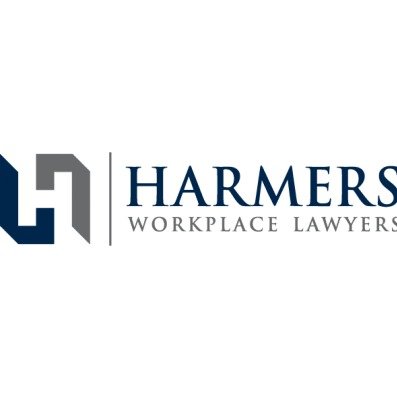Best Employment & Labor Lawyers in Brisbane
Share your needs with us, get contacted by law firms.
Free. Takes 2 min.
List of the best lawyers in Brisbane, Australia
Australia Employment & Labor Legal Articles
Browse our 1 legal article about Employment & Labor in Australia written by expert lawyers.
- Fired Without Warning in Australia: Unfair Dismissal Guide
- Most Australian workplaces are covered by the Fair Work Act 2009 (Cth), National Employment Standards (NES) and a modern award or enterprise agreement that set minimum pay and conditions. Strict deadlines apply: unfair dismissal and most general protections dismissal claims must be lodged with the Fair Work Commission within 21... Read more →
About Employment & Labor Law in Brisbane, Australia
Employment and labor law in Brisbane, Australia, is a complex, multifaceted area of law designed to regulate the relationship between employers and employees. It covers a broad range of issues such as employment contracts, discrimination, workplace safety, unfair dismissal, and employee entitlements. The legal framework is underpinned by federal and state legislation, including the Fair Work Act 2009, which is a key piece of legislation governing employment relationships across Australia. Brisbane, being part of Queensland, is also subject to specific state laws that relate to employment and labor matters.
Why You May Need a Lawyer
Individuals may require legal assistance in employment and labor matters for various reasons. Common situations include disputes over unfair dismissal, questions about employment contracts, workplace discrimination, and underpayment of wages. Additionally, if a business is dealing with industrial relations issues, compliance with workplace health and safety laws, or negotiating enterprise agreements, they may need the expertise of a lawyer to navigate these complexities. Consulting a lawyer can provide clarity and protection for your rights, whether you are an employee seeking justice or an employer ensuring compliance with legal obligations.
Local Laws Overview
The key aspects of local laws in Brisbane that are relevant to employment and labor include:
- Fair Work Act 2009: Governs the majority of employment relationships, establishing the National Employment Standards (NES), which set out minimum terms and conditions for employment.
- Queensland Industrial Relations Act 2016: Applicable to state and local government employees in Queensland, providing additional standards and protections.
- Workplace Health and Safety Act 2011: Ensures safety and welfare in the workplace, emphasizing duties of care on both employers and employees.
- Anti-Discrimination Act 1991 (Qld): Prohibits discrimination in employment on various grounds, including race, gender, age, and disability.
- Workers' Compensation and Rehabilitation Act 2003: Outlines the rights and responsibilities regarding workers' compensation in Queensland.
Frequently Asked Questions
What are the National Employment Standards (NES)?
The NES are a set of 11 minimum employment entitlements that must be provided to all employees in Australia. They include maximum weekly hours, requests for flexible working arrangements, parental leave, annual leave, and personal/carer’s leave.
What is unfair dismissal?
Unfair dismissal occurs when an employee is terminated in a harsh, unjust, or unreasonable manner. Employees who believe they have been unfairly dismissed may lodge a claim with the Fair Work Commission.
How can an employment contract be terminated?
Termination can occur through resignation, redundancy, or dismissal. The legal requirements vary depending on the circumstances, including notice period and any entitlements owed to the employee.
What constitutes workplace discrimination?
Workplace discrimination involves treating an individual unfairly due to characteristics such as race, sex, age, or disability. Such actions are illegal under both federal and state anti-discrimination laws.
How do I handle a workplace bullying situation?
Bullying is repeated unreasonable behavior directed towards a worker or group that poses a risk to health and safety. Employees should report bullying to their employer and, if unresolved, may seek intervention from the Fair Work Commission.
What are my rights concerning workplace health and safety?
Both employees and employers have duties under the Workplace Health and Safety Act to ensure a safe working environment. Employees can report unsafe conditions and refuse unsafe work under certain conditions.
Do casual workers have different rights from permanent employees?
Yes, casual workers have different entitlements, including no guarantee of hours and limited leave entitlements. However, they are entitled to a loading rate in lieu of leave benefits.
Can I request flexible working arrangements?
Certain employees, such as parents of school-aged children, have the right to request flexible working arrangements. Employers must consider these requests but can refuse on reasonable business grounds.
What is redundancy, and when is it genuine?
Redundancy occurs when a position is no longer required due to changes in operational requirements. A genuine redundancy entails that there was no alternative position available and the employer followed the consultation requirements.
How can I ensure compliance with employment law as an employer?
Employers should regularly review their obligations under relevant legislation, maintain proper employee records, provide sufficient training, and seek legal advice to ensure compliance with all employment-related laws.
Additional Resources
For further assistance, you may contact or refer to the following resources:
- Fair Work Ombudsman: Provides information and assistance on workplace rights and obligations.
- Queensland Industrial Relations Commission: Resolves employment disputes and provides information regarding state industrial laws.
- WorkSafe Queensland: Offers resources and support for workplace health and safety and workers' compensation.
- Australian Human Rights Commission: Deals with complaints about discrimination and provides educational material.
- Legal Aid Queensland: Provides legal advice and assistance on various issues, including employment law.
Next Steps
If you need legal assistance in employment and labor matters, consider taking the following steps:
- Evaluate your situation and identify the specific employment law issues you are encountering.
- Gather all relevant documentation, such as employment contracts, pay slips, and any correspondence with your employer or employee.
- Consult with a specialist employment lawyer in Brisbane to discuss your case and explore your legal options.
- Consider reaching out to relevant government bodies or support organizations for initial guidance or resources.
- Keep informed about your rights and responsibilities under employment and labor laws to prevent future issues.
By following these steps, you can improve your understanding of the legal landscape and seek proper resolution of your employment concerns.
Lawzana helps you find the best lawyers and law firms in Brisbane through a curated and pre-screened list of qualified legal professionals. Our platform offers rankings and detailed profiles of attorneys and law firms, allowing you to compare based on practice areas, including Employment & Labor, experience, and client feedback.
Each profile includes a description of the firm's areas of practice, client reviews, team members and partners, year of establishment, spoken languages, office locations, contact information, social media presence, and any published articles or resources. Most firms on our platform speak English and are experienced in both local and international legal matters.
Get a quote from top-rated law firms in Brisbane, Australia — quickly, securely, and without unnecessary hassle.
Disclaimer:
The information provided on this page is for general informational purposes only and does not constitute legal advice. While we strive to ensure the accuracy and relevance of the content, legal information may change over time, and interpretations of the law can vary. You should always consult with a qualified legal professional for advice specific to your situation.
We disclaim all liability for actions taken or not taken based on the content of this page. If you believe any information is incorrect or outdated, please contact us, and we will review and update it where appropriate.
Browse employment & labor law firms by service in Brisbane, Australia
Brisbane, Australia Attorneys in related practice areas.

















